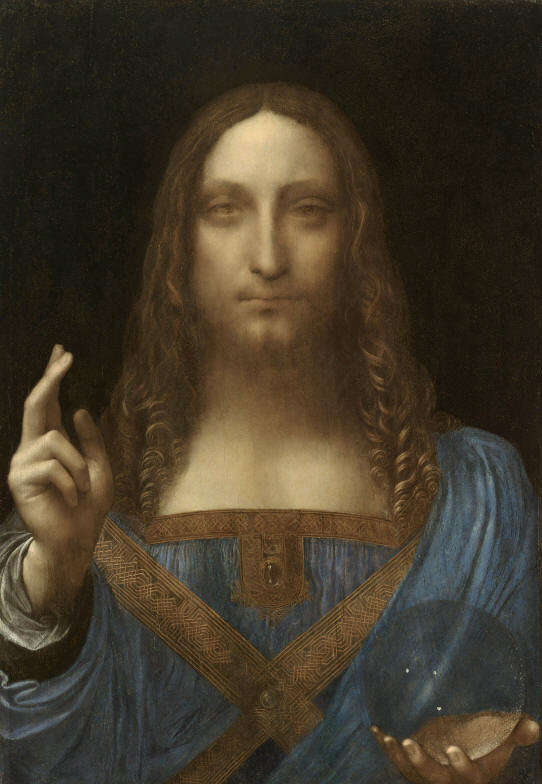.jpg)
.jpg)
.jpg)
.jpg)
.jpg)
.jpg) |
Buddhá
(Wise)
|
Putting
Descartes before the horse
René Descartes (1596-1650)
–
a French Philosopher, Mathematician
and Scientist
–
is famously associated with the saying, "I think,
therefore I am".
That is fine, of course, except he did not speak
English
–
and in the case
of the relevant phrase, it was not even written in
French (rather, it
appeared in Latin).
The written phrase Descartes used was, "cogito,
ergo sum".
As occurs in translation, different
interpretations are available and one
is certainly, "I think,
therefore I am".
Another option follows:
I think, ponder, meditate, reflect,
consider, intend,
design, plan or devise because I exist.
Some will perceive nothing that distinguishes
those variants, but others
may identify subtle and not-so-subtle
differences (perhaps applying
epithets like 'idiotic',
'indecipherable' and 'profound'). The same might
occur in respect of
the following query (rendered first in English, then
in Traditional
Chinese and finally in an alternate translation of the
Chinese that
appears as a statement in response), namely, "Can a
person be
empathic, Christian and drawn to the occult all at the same
time?"
所被基有否一
吸神督同同个
引秘徒理時人
学和心具能
One single mortal capable of, bearing or
withstanding censure, denunciation, obstruction, poverty or
evil is a match for the season in which embodying reason,
principle, logic and truth is critical.
Primary and fundamental oversight and
direction is only gentle, mild, kind and harmonious.
To suffer, sustain or cover one's self
with a mind that is secretive, misunderstood,
incomprehensible or mysterious mimics that which imbibes
quotes, references and 'following instructions'.
|
|

The image shown above is an engraving of Rene
Descartes
by William Holl the Younger (1807-1871) after a
painting by
Frans Hals
(1582-1666).
|
|
|
|
|
|
|
|
|
|
|
|
|
|
|
|
|
|
|
|
Who said
what and what matters
Did
Friedrich Nietzsche (1844-1900)
–
a German philosopher, cultural critic and philologist
–
utter the quote shown below?
God is dead! God remains dead! And we have killed him.
How shall we comfort ourselves, the murderers of all
murderers?
No ... he
did not speak English. Instead, he wrote the following passage:
Gott ist todt! Gott bleibt todt! Und wir haben ihn
getödtet! Wie trösten wir uns, die Mörder aller Mörder?
Not
surprisingly (at least for those familiar with translation), those
German
words can be read differently ... perhaps something like this:
The supreme idol is death! The supreme idol remains
death! And we embrace it by killing! How to console us,
we
who are killers ... all killers?
It is
quite different from the traditional variant and sounds a little
all-too-curiously like the sort of thing many a teenage Vegan has
shouted at
one time or another (and Nietzsche, himself, is known to
have
wrestled with Vegetarianism in his life). Not that it matters (in
some
respects)
– amusing, poignant or misdirection, the next
moment
awaits and
what we make of it relies (in part) on our own endeavours.
As Layman
Pang (龐居士 ["big Ge-Se" {or "the huge retired scholar"}]
– said to have been a Buddhist who lived in
the 8th Century CE
– might have spoken:
槃水用並神
柴及運妙通
Many would
be familiar with the popular paraphrasing of that, namely:
My
supernatural powers? Carrying water and cutting
wood.
That, of
course, is fine and quite grounded, but the Chinese may also be
read as
follows:
Mind, expression or the sublime are common sense and
profound, exquisite or ingenious
– therefore, carrying
water, fortune or what is good or beautiful extends or
reaches the territory that is defended or cut off.
Cue ‘the
next moment’. |
|
.jpg)
The image shown above is an painting of
Friedrich Nietzsche
by Edvard Munch
(1863-1944).
|
|
|
|
|
|
|
|
|
|
|
|
|
|
|
|
|
|
|
|
On the
matter of
χρηστώ
vis-à-vis
Χρῑστός
Some might interpret
“δῠνᾰ́μεις ἡμεῖς είναι χρηστώ ᾱ̓μήν”
(a passage in Koine Greek) as follows:
Our strength is in Christ amen.
Given the variable
meanings of words, there are many ways of interpreting that Koine
Greek passage, but none include 'Christ'
( χρηστώ
is not
Χρῑστός ... an
ἰῶτα makes a
world of difference [as
others
–
including Philo of Alexandria and Michael Servetus
–
have observed]).
The term
χρηστώ has
various meanings including "good", "useful", "kind", "gracious",
"easy" and "manageable" (and
–
as it happens
–
was a word used in association with Jesus in the New Testament until
Χρῑστός was
interposed some time during the 13th Century [historically, a 'great
shift' is apparent in Bibles of the period where even "η" is scraped
off the velum and substituted with "ῑ"]).
The word
ᾱ̓μήν, too, is
not self-referential
–
it means "truly", "certainly" or "so be it". Covering the other
relevant term
–
δῠνᾰ́μεις
–
can be interpreted as a variant of "power", "ability", "influence",
"military force", "magical or miraculous powers", "capacity",
"value", "meaning" and the like.
|
|

The image shown above is an painting known as 'Salvator
Mundi'
by Leonardo da Vinci
(1452-1519). Said to depict the Jesus of the
New Testament, the image shows the subject making a hand
gesture curiously similar to the Buddhist
mudrā́
("seal") indicating
prāṇá
("life", "vitality", "breath", "energy", "vigor", "strength",
"power", "the soul" and "ātmán"
["self", "character", "body",
"mind", "understanding" or "effort"]).
|
|
|
|
|
|
|
|
|
|
|
|
|
|
|
|
|
|
|
|
A Message
to You, Rudy
Valē Terry Hall
...
even if we barely knew
you at all.
Elon Musk has shut his
trap,
Trump is - well, who
gives a crap.
Some think we needs to
knows
he got it on with one of
The Go-Go's.
Others will reflect on
losing a hero
and losers will think he
was a zero.
He made a difference to
many
and had friends and
family.
While I usually abhor
lyrics that rhyme,
I suspect so did he - and
these are just fine:
...
and whoever said
it was
meant to be easy
was
someone who knew how to cope
not
aimlessly walk
round
and round in a circle
to end
up without any hope
and
the constant reminder
of all
that you've missed
from
everyone you'll never know
it's
hard to stay in
with
the popular crowd
but oh
so much harder to go.
Valē Terry Hall
and commiserations to his
family an' all.
|
|

One of the many faces of Terry Hall (1959-2022).
|
|
|
|
|
|
|
|
|
|
|
|
|
|
|
|
|
|
|
|
%20(ii).jpg)
.jpg)
%20(ii).jpg)
.jpg)